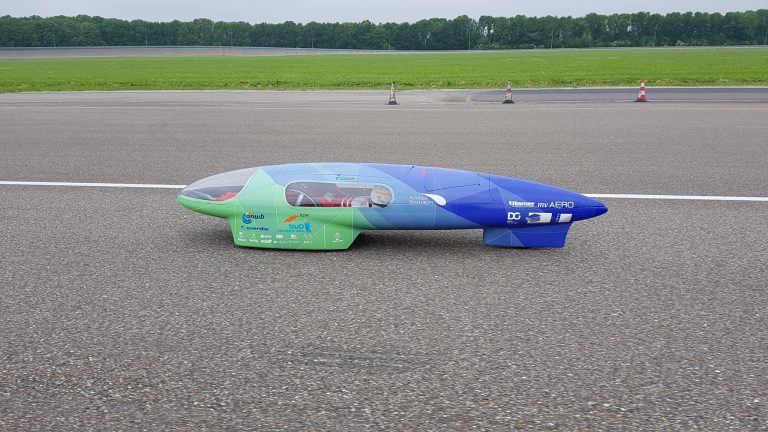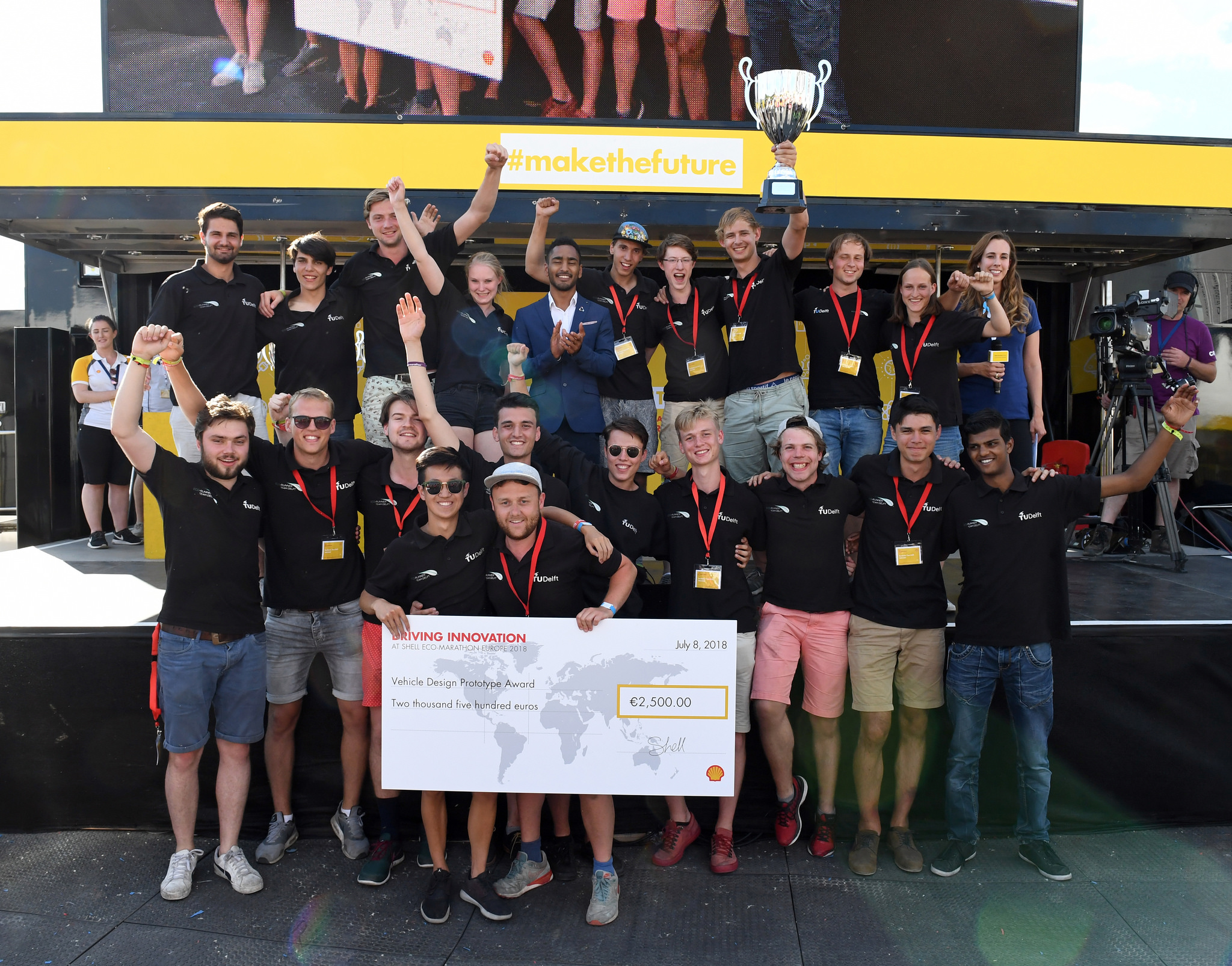During the Shell Eco-marathon in London, the TU Delft Ecorunner reached the third place in the prototype category last weekend. Additionally, the Ecorunner team won the design award.
The ultra-efficient hydrogen-powered vehicle, weighing only 42 kilogrammes and experiencing no more than two Newton of wind drag, used the equivalent of one litre of fuel for 2,300 kilometres. Or, expressed in hydrogen, 684 kilometres per m3 of hydrogen.

The Delft Ecorunner is totally dedicated to fuel-efficiency. Speed, driver-comfort, and usability have all been sacrificed to optimise sustainability. Ever since 2006, the TU Delft teams have worked with hydrogen fuel, using a fuel cell to produce power for the electric engine.
At the Shell Eco-marathon Europe, held in London on 7 and 8 July 2018, each team had three attempts to drive the 16-kilometre track in under 40 minutes. The fuel consumption was measured each time, and the best result entered into the competition.
At the beginning of their third and final attempt, the team was hoping to attain the first place. In its Facebook page, it wrote: ‘The first place (779 km/m3) was in sight. With systems improved for the last run, we took off at around 14:45. It really well, but after a few laps, Josh had to brake for a slow driver. When he applied the brake his back wheel slipped dramatically. This meant we lost a lot of kinetic energy and we also had to increase our speed for the rest of the race in order to make it back in time. The result was only 630 km/m3, a little below our best attempt.’
In conclusion, the team stated that it: ‘is happy with third place, but a little disappointed because we were not able to get everything from the Ecorunner 8 that it was. Luckily, to ease the pain, the team was awarded the Vehicle Design award. We won the award because of our integral design of the car, an advanced neural network for the strategy, and a great team structure.’
Next year, another student team will build the Ecorunner 9. Recruitment is ongoing and open to all TU Delft students.
Heb je een vraag of opmerking over dit artikel?
j.w.wassink@tudelft.nl


Comments are closed.